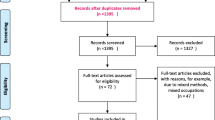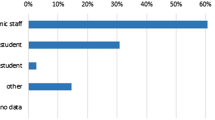Abstract
This case study presents the new career guidance helpline managed by the South African Qualifications Authority in South Africa, a middle-income country. The National Qualifications Framework and Career Advice Helpline represent a national equity-driven initiative using technology to expand access. The model has drawn on contemporary international research and models of innovative systems, while modifying the design for local relevance. It illustrates the need for broadening the parameters in the career guidance profession.
Résumé
Une assistance téléphonique visant des conseils professionnels: une étude de cas en Afrique du Sud. Cette étude de cas présente le nouveau service d’assistance téléphonique d’orientation professionnelle (Career Advice Helpline) géré par l’African Qualifications Authority en Afrique du Sud, un pays à revenu intermédiaire. Le National Qualifications Framework ainsi que le Career Advice Helpline représentent une initiative nationale axée sur l’équité utilisant la technologie dans le but d’élargir son accès. Le modèle s’est inspiré de la recherche internationale contemporaine et des modèles de systèmes innovants, tout en modifiant sa conception pour être pertinent au niveau local. Il illustre la nécessité d’élargir les paramètres dans les activités de conseil en orientation.
Zusammenfassung
Eine Hotline für Berufsberatung: Eine Fallstudie aus Südafrika. Diese Fallstudie stellt die neue Hotline für Berufsberatung der South African Qualifications Authority in Südafrika vor, einem Land mit mittlerem Einkommen. Der Nationale Qualifikationsrahmen und die Hotline für Berufsberatung stellen eine nationale Eigenkapital-Initiative zum Einsatz von Technologie für die Erweiterung von Zugang dar. Das Modell basiert auf zeitgenössischer internationaler Forschung und Modellen von innovativen Systemen, unter gleichzeitiger Abänderung des Designs für lokale Relevanz. Es verdeutlicht die Notwendigkeit, die Parameter in der Profession der Berufsberatung zu erweitern.
Resumen
Línea de Asesoramiento para la Orientación Profesional: Estudio de Caso en Suráfrica. Este estudio de caso presenta la nueva línea de atención teléfonica de asesoramiento (helpline) para la orientación profesional, gestionada por la Autoridad de las Cualificaciones Surafricana, en Sur África, un país con nivel de ingresos económicos medio. El Marco de Cualificaciones Nacional y la línea de Asesoramiento de la Carrera representan una iniciativa nacional, dentro de las políticas de equidad, que usa la tecnología para aumentar la accesibilidad a la orientación profesional. El modelo se ha basado en la investigación internacional y los modelos de sistemas innovadores, modificando el diseño en función del contexto para que sea relevante y significativo en el ámbito local. Este ejemplo refleja la necesidad de ampliar los parámetros de la profesión orientadora.
Similar content being viewed by others
References
Bhorat, B., van der Westhuizen, C., & Jacobs, T. (2009). Income and non-income inequality in post-apartheid South Africa: What are the drivers and possible policy interventions? Working Paper 96114. Cape Town: Development Policy Research Unit, University of Cape Town.
du Toit, R. (2005). Careers guidance and employment services: Employment and economic policy research programme review of labour markets in South Africa. Pretoria: Human Sciences Research Council.
du Toit, R., & Meyer, M. (2010, October). From misery to meaning: The plight of unemployed youth in South Africa. Paper presented at the IAEVG-Jiva Conference, Bangalore, India.
Flederman, P. (2009). Navigational tools for learners, really? What is available, what are the challenges and what should be done? In Career guidance: Challenges and opportunities. Pretoria: South African Qualifications Authority.
Gapminder. (2010). Gapminder worldmap. Retrieved from http://www.gapminder.org/downloads/gapminder-world-map/.
Hansen, E. (2006). Career guidance: A resource for low and middle-income countries. Geneva: International Labour Organisation.
Isaacs, S. (2010a, October). Creating a national NQF and career advice helpline. Paper presented at the IAEVG-Jiva conference, Bangalore, India.
Isaacs, S. (2010b, November). The new workforce: What does it look like and what are we looking for? Paper presented at the Reliability and maintenance week, Pretoria, South Africa.
Kay, L. L. E., & Fretwell, D. H. (2003). Public policies and career development: A framework for the design of career information, guidance and counseling services in developing countries: Country report on South Africa. Washington, DC: World Bank.
Kraak, A. (2002). Discursive shifts and structural continuities in South African vocational education and vocational training: 1981–1999. In P. Kallaway (Ed.), The history of education under apartheid 1948 to 1994: The doors of learning and culture shall be open. Cape Town: Maskew Miller Longman.
Mullis, I., Martin, M., Kennedy, A., & Foy, P. (2007). Progress in International Reading Literacy Study (PIRLS): 2006 international report. Boston: International Association for the Evaluation of Educational Achievement.
Nzimande, B. (2010). Media statement on Nelson Mandela Career Guidance Campaign. Pretoria: Department of Higher Education and Training.
Organisation for Economic Co-operation, Development. (2004). Career guidance and public policy: Bridging the gap. Paris: OECD.
Parker, B., & Walters, S. (2008). Competency based training and national qualifications frameworks: Insights from South Africa. Asia Pacific Education Review, 9, 70–79.
Rushkoff, D. (2009). Life Inc: How corporatism conquered the world and how we can take it back. New York: Random House.
Stats S. A. (2010). Quarterly Labour Force Survey. Pretoria: Statistics South Africa.
Sultana, R. G. (2009). Career guidance policies: Global dynamics, local resonances. Derby: International Centre for Guidance Studies, University of Derby.
Sultana, R. G., & Watts, A. G. (2007). Career guidance in the Mediterranean region. Turin: European Training Foundation.
Troup, F. (1976). Forbidden pastures: Education under apartheid. London: International Defence and Aid Fund.
Walters, S. (1976). Career guidance and occupational choice. Cape Town: Foundation for Social Development, University of the Western Cape.
Walters, S. (1989). Education for democratic participation. Bellville: University of the Western Cape.
Walters, S. (Ed.). (2009). Career guidance: Challenges and opportunities. Pretoria: South Africa Qualifications Authority.
Walters, S., & Isaacs, S. (2009, January). National qualifications frameworks: Insights from South Africa. Paper presented at The European Qualifications Framework: Linking to a Globalised world conference, Brussels, Belgium.
Walters, S., Watts, A. G., & Flederman, P. (2009). Navigating the national qualifications framework (NQF): The role of career guidance. South African Journal of Higher Education, 23, 561–574.
Watson, M. (2009). Transitioning contexts of career psychology in South Africa. Asian Journal of Counselling, 16, 133–148.
Watson, M. (2010). Career psychology in South Africa: Addressing and redressing social justice. Australian Journal of Career Development, 19, 24–29.
Watts, A. G. (1980). Career guidance under apartheid. International Journal for the Advancement of Counselling, 3, 3–27.
Watts, A. G. (2007). Career services: A review in an international perspective. Wellington: Career Services.
Watts, A. G. (2009). The role of career guidance in the development of the national qualifications framework in South Africa. In South African Qualifications Authority (Ed.), Career guidance challenges and opportunities (pp. 6–12). Waterkloof: Author.
Watts, A. G., & Dent, G. (2002). “Let your fingers do the walking”: The use of telephone helplines in career information and guidance. British Journal of Guidance and Counselling, 30, 17–35.
Watts, A. G., & Dent, G. (2008). The evolution of a national distance guidance service: Trends and challenges. British Journal of Guidance and Counselling, 36, 455–465.
Watts, A. G., & Fretwell, D. H. (2004). Public policies for career development: Case studies and emerging issues for designing career information and guidance systems in developing and transition economies. Washington, DC: World Bank.
Watts, A. G., & Sultana, R. G. (2004). Career guidance policies in 37 countries: Contrasts and common themes. International Journal for Educational and Vocational Guidance, 4, 105–122.
Author information
Authors and Affiliations
Corresponding author
Rights and permissions
About this article
Cite this article
Flederman, P. A career advice helpline: a case study from South Africa. Int J Educ Vocat Guidance 11, 111–123 (2011). https://doi.org/10.1007/s10775-011-9202-7
Received:
Accepted:
Published:
Issue Date:
DOI: https://doi.org/10.1007/s10775-011-9202-7




